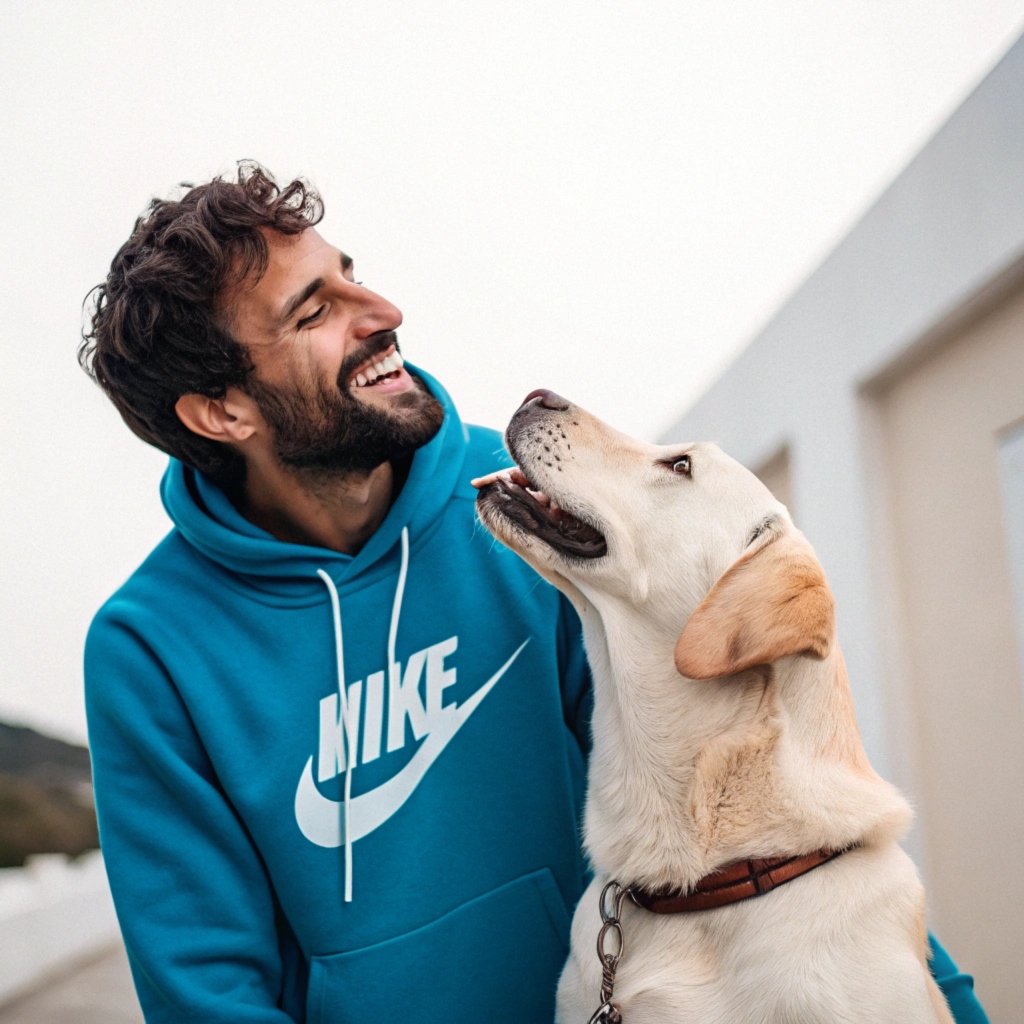French Bulldog Care Guide: What New Owners Need to Know
So, you’ve joined the French Bulldog fan club. Congrats! You now own one of the cutest, quirkiest, most personality-packed little dogs on the planet.
But here’s the catch—behind all that cuteness lies a breed that comes with some very specific care needs.
They might not need hours of exercise like a Husky, but they definitely require smart care to keep them healthy and happy. Let’s dive into everything new Frenchie parents need to know.
1. Breathing Issues: Why Your Frenchie Snores Like a Grandpa

Frenchies are brachycephalic dogs (translation: smushed face + narrow airways). That adorable snort? It’s actually a breathing issue in disguise.
What this means for you:
🍲 50 Printable Dog Food Recipes Your Pup Will Love
Skip the fillers and preservatives. Make healthy, homemade meals your dog will actually eat — using everyday ingredients you already trust. Vet-friendly, budget-friendly, and super easy to follow. 🐾
Perfect for picky eaters, senior dogs, and pups with sensitive stomachs. Make mealtime simple and nutritious again.
Get the Recipes Now 🐶- Don’t over-exercise them, especially in hot weather. They overheat FAST.
- Avoid long walks in the middle of summer—early mornings or evenings are safer.
- Keep an eye out for heavy panting, gagging, or extreme tiredness. That’s your Frenchie saying, “I can’t breathe, human!”
Some Frenchies even need surgery to widen their nostrils. It’s not fun, but it can seriously improve their quality of life.
2. Exercise: Couch Potato… With a Twist
Yes, Frenchies love being couch buddies, but that doesn’t mean they don’t need exercise. Without daily activity, they can pack on the pounds faster than you can say “extra treats.”

Ideal exercise routine:
- 20–30 minutes of moderate walking each day
- A few short play sessions (fetch in the hallway counts!)
- Avoid intense running or jumping—those stocky bodies weren’t built for marathons
Frenchies are all about balance: too much exercise = breathing issues, too little = chunky monkey.
3. Diet: Frenchies Will Eat First, Ask Questions Later
Let’s be real—French Bulldogs are basically furry vacuum cleaners. If it’s edible (and sometimes if it’s not), they’ll try to eat it.

Feeding tips:
- Stick to portioned meals, not free-feeding
- Choose high-quality dog food (grain-free isn’t always better, despite the hype)
- Watch out for allergies—Frenchies are prone to food sensitivities that cause itchy skin, ear infections, and tummy troubles
Oh, and table scraps? Big no-no. One too many pizza crusts, and you’ll have a Frenchie with digestive issues (and you’ll be regretting your generosity).
4. Grooming: Short Hair Doesn’t Mean No Grooming
Sure, Frenchies don’t have the fluff of a Poodle, but they still need grooming to stay clean and comfy.

Basic grooming routine:
- Weekly brushing with a soft-bristle brush to remove loose hair
- Regular baths (every 1–2 months or when they smell like trouble)
- Nail trims every 3–4 weeks (Frenchies aren’t great at wearing nails down naturally)
- Clean ears regularly—they’re prone to infections
And here’s the biggie: wrinkle care. French Bulldogs’ face folds are cute, but they trap moisture, dirt, and bacteria. Wipe those wrinkles daily with a damp cloth or dog-safe wipe, then dry them thoroughly. Otherwise, you’re asking for skin infections.
5. Training: Stubborn but Lovable
Frenchies are smart—but they’re also stubborn. If they could talk, their favorite phrase would be, “What’s in it for me?”
Training hacks that actually work:
- Keep sessions short (5–10 minutes max)
- Use positive reinforcement (aka treats, praise, and toys)
- Be consistent with commands—don’t let them get away with bad habits “just because they’re cute”
House training can take patience, but once they get it, they’re solid. IMO, Frenchies are like toddlers: they’ll push boundaries, but with the right motivation, they’ll surprise you.
6. Health Concerns: What Every Owner Should Know
Frenchies are wonderful, but they aren’t exactly the healthiest breed on the block. Knowing their common health issues upfront helps you catch problems early.

Most common Frenchie health issues:
- Breathing problems (as mentioned)
- Hip dysplasia and joint issues
- Allergies and skin problems
- Ear infections
- Heat sensitivity
Pro tip: Pet insurance is worth considering with French Bulldogs. Vet bills add up quickly, and insurance can save you from a world of financial pain.
7. Frenchies and Weather: Too Hot or Too Cold
Frenchies are basically Goldilocks—they don’t do well in extreme temperatures.
- Hot weather: They overheat easily, so keep them in cool, shaded areas and avoid midday walks.
- Cold weather: That short coat offers zero insulation. A light dog sweater or jacket isn’t just “cute Instagram content”—it’s necessary.
If you live in a place with extreme summers or winters, you’ll need to adjust your care routine big time.
8. Frenchies Don’t Like Being Alone (At All)
Here’s the thing: Frenchies are people dogs. They thrive on attention and can develop separation anxiety if left alone for too long.
Signs your Frenchie struggles with alone time:
- Excessive barking or whining
- Chewing furniture, shoes, or basically anything they can reach
- Potty accidents, even if they’re house-trained
To help:
- Leave puzzle toys or treat-dispensing games
- Try short absences and gradually build up time away
- Avoid dramatic goodbyes or greetings—it only makes the anxiety worse

9. Spoiler Alert: They’re Clowns at Heart
Care tips aside, here’s the truth—Frenchies are born entertainers. They’re goofy, affectionate, and they’ll make you laugh daily with their silly antics. But that also means they’ll test your patience with stubborn streaks, loud snores, and the occasional “I’m not moving from this spot, and you can’t make me” attitude.
Final Thoughts
Owning a French Bulldog is equal parts joy and responsibility. They’re adorable, hilarious, and full of personality, but they need special care to stay healthy and happy.
Quick recap for new owners:
- Watch for breathing issues
- Balance exercise and rest
- Feed carefully to avoid obesity and allergies
- Groom regularly, especially those wrinkles
- Train with patience (and lots of treats)
- Keep them safe from heat and cold
- Don’t leave them alone too long
Do all that, and you’ll have a loyal, lovable little clown who’ll steal your heart (and probably your spot on the couch). FYI, the snoring? You’ll get used to it… eventually. 🙂

I’ve spent 10+ years in dog training, digging into what makes dogs (and their humans) tick. At Smart Dog Learning, I share my no-nonsense, fun approach to training so you can enjoy life with a well-behaved, happy pup—no boring lectures, just practical results 😉






